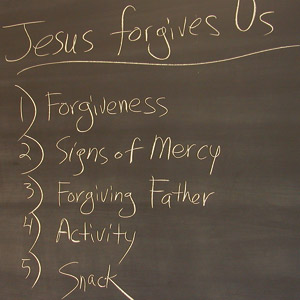 |
| (PHOTO BY GEOFFREY ISLEY AFTER ELIZABETH LAWLEY) |
Spirit Matters is a regular feature of In Trust. Melinda R. Heppe, pastor of two Lutheran churches in central Pennsylvania, is In Trust's contributing editor.
It isn't what it sounds like. It's not an institution. It's not even a program. It's sort of an inside joke, but of the sort the Irish call "half fun and full earnest."
Over the last dozen years or so, our tiny church has seen if not a stream, then at least a steady trickle of the ordained but-not-ministering-as-such wash up on our shore.
They're a diverse lot — surprisingly ecumenical, for one thing (we've even had an Eastern-rite Roman Catholic, and they are not exactly a dime a dozen). They come straight from failed ministries, or years from successful ones they nevertheless left behind. They come in varying stages of health — physical, emotional, and spiritual.
Our program (for want of a better term) is simple. We put them to work — volunteering, mind you — as musicians, pastoral care providers, or preachers, and generally invite them into the life of a congregation that seems to have much in common with Rudolph the Red-Nosed Reindeer's Island of Misfit Toys. We tell them our stories, we make them laugh. And then, in most cases, we wave a happy goodbye as they return to their calling.
It is God's humor that they come ashore here. In the middle of the 20th century, this congregation had a reputation as a clergy killer. It was deserved, too — sometimes, after spring rains, one can still discern in the parsonage basement a whiff of the chinchillas that one pastor took to raising there when he wasn't being paid. In due time, he left the chinchillas, the congregation, the ministry, and the church. He eventually found his way back to faith, and through a remarkable series of events, he was able to come to the congregation's 125th anniversary, where more healing came about just weeks before he died.
The congregation is not exactly about the business of expiating our guilt here, but we do know a thing or two about how good pastors are damaged by bad situations. And, more to the point, we are acutely aware that the church, in its local or larger expressions, doesn't always act as it should. Our "wayward" clergy, every one of them, just seem to find that part hard to handle.
These clergy have some other things in common as well. They are uniformly bright and pious and skilled. They've all made mistakes, and are all damaged in some way (but what human is not?). Some have trouble owning up to their mistakes; others to forgiving themselves even after others have forgiven them. And each one has an air of innocence — offended innocence. Sophisticated in other areas of their lives, they have nonetheless expected the church consistently to live to its highest calling. This speaks well of their faith and of their hope. It does not speak well of those responsible for their formation.
Now, with all the things that theological schools need to teach, it is hard to demand that this topic should make it into the curriculum (although it's hard to imagine a church history class that doesn't make the point). We do not anticipate an accreditation standard to address this issue. Besides, it is a lesson best learned from experience, and it has to be done one on one.
Pray for the church — in public, if that is one of your roles — that it may live to its calling, that it may not drive away its own. Pray that "wayward" clergy can forgive and be forgiven. And share your stories — stories of disaster, yes, but stories of healing, too. Equip the saints with the knowledge that change does happen, that joy can be restored. And a sense of humor doesn't hurt, either.